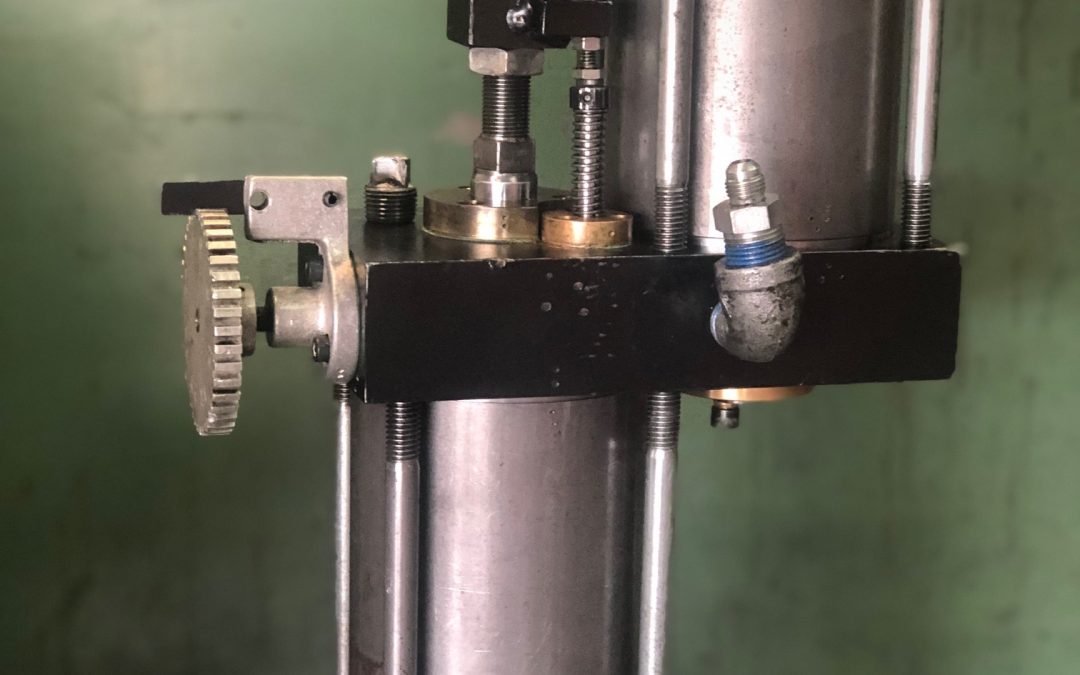Hydraulic cylinders are a critical component in machinery used in a wide variety of industries. They have a multitude of uses in the construction and manufacturing industry, for example, and any breakdown can slow down or stall operations leading to considerable expenses. Proper use, maintenance, and inspection are crucial to keep them in optimal condition.
When a hydraulic cylinder fails to work, it can prevent the system from operating effectively, slow or stall down operations, waste electricity, and damage components. Some of the reasons behind hydraulic cylinder failure are a misalignment, overheating, leaking seal, corroded barrel, damaged eye bearing or piston rods. To resolve malfunctioning cylinders, it is important to first understand the nature of the failure, inspect the causes, and then address it accordingly.
Hydraulic Cylinder Components
The components in a hydraulic cylinder need to be understood to identify errors and resolve them. Primarily, there are a few important hydraulic cylinder parts that work in tandem and the failure of anyone can affect the system as a whole.
- The visible piston rod
- The piston that transfers energy to the piston rod
- Cylinder cap
- Cylinder head
- Seals and bearings
Corrosion Caused by Chemicals
Hydraulic cylinders operate in all kinds of environments, some of which involve contact with chemicals. Harsh, abrasive chemicals can sometimes damage vulnerable material, such as the cylinder seal. If the seal is not compatible with the seal material, it can corrode. Make sure the new components of the hydraulic cylinder is compatible with the environment it is used in. Contact the manufacturer to make an informed choice.
Contaminated Hydraulic Fluid
The hydraulic fluid can be contaminated by air, water, or abrasive particles that can get trapped between the piston rod and its seal, affect performance, causing leaks and affecting the loads it carries. Even during maintenance and repair, if the proper cleaning procedures are not followed, the seals can get damaged. This is the reason you need to hire certified professionals for maintenance and inspection.
Corroded Barrel
When water enters the hydraulic cylinder, the barrel can get corroded. Since this is internal, it is not easy to repair. The cylinder must be compatible with the environment it functions in. The seal must keep out water effectively to prevent leaks into the barrel.
Damaged Eye and Rod Bearings
If the cylinder is forced to carry excessive loads, the eye bearing can get affected. Similarly, improper alignment between the cylinder and the load it carries can be affected with excessive load, denting or damaging the rod bearings. Never continue using a cylinder with a dented rod or barrel as it can ruin the bearings and seals. Change it for a new one immediately.
Extreme Heat or Cold
Extreme operating temperatures, both hot and cold, can affect the seals. Leaking seals let critical fluids, such as lubricants, seep out of the cylinder allowing water, air, and corrosive particles to enter and cause cylinder failure. Worn out seals must be replaced before they are damaged. Timely inspection is extremely important to prevent most of these failures.
Go Hydraulics
We have over 30 years of experience in all makes and models of hydraulic components in manufacturing, agriculture, marine, lumber, and automotive industries. Contact Go Hydraulics for timely maintenance, repairs, and reconstruction of hydraulic components.


Recent Comments